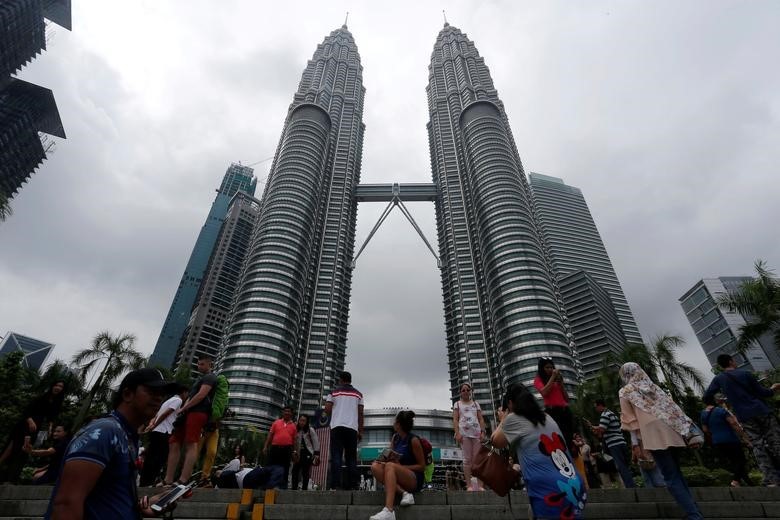
Image credit: Reuters
THE political instability which has led to the implementation of fluctuating and inconsistent policies will complicate Malaysia’s efforts to revive the economy.
Former Deputy DG (Macro), Economic Planning Unit, Prime Minister’s Department, Datuk K Yogeesvaran said political stability is very important as it guarantees an integrated and consistent policymaking.
“This is a big issue that needs to be addressed. If we do not have political stability, we will fail to achieve recovery. Political stability has to do with unity and consistency.
“If the policy is constantly changing every day or every week, we will not experience recovery.
“Therefore, political stability will lead to a consistent and integrated policymaking which is very important for the country,” he said during a panel session at the Malaysia Economic Summit 2022 themed “Accelerating Structural Transformation, Driving Economic Growth” in Kuala Lumpur on Tuesday.
Other panellists include Putra Business School Assoc Prof Dr Ahmed Razman Abdul Latiff and Malaysia Venture Capital Management Bhd director Manokaran Mottain.
Commenting further, Yogeesvaran said another issue that should be of concern is the importance for the government to have a long-term vision to formulate a policy.
Apart from that, he said, the panellists also raised many unresolved structuring issues including foreign labour, infrastructure, regulatory framework, taxation system and others which need to be addressed.
“We will face big problems if these issues are not addressed properly. These are real issues that are plaguing our country and need to be addressed accordingly,” he added.
On that note, Yogeesvaran urged the government to consider alternative measures to ensure economic recovery.
He added that the current situation that is uncertain has resulted in higher inflation, which disproportionately affects those from lower incomes.
According to him, the introduction of subsidies is a short-term measure that will only temporarily resolve the issue. A more constructive measure must be taken to combat inflation.
“Despite the rosy national economic data, the majority of the population is struggling to overcome day-to-day challenges.
“When we discuss subsidies and targeted groups, we are already working on targeted subsidies, and there are a number of options on the table.
“We should not look at self-sufficiency data alone, we need to review the affordability and the quality elements too. There is a clear dissonance between the macroeconomic data and microeconomic data,” he added.
Echoing similar views, Manokaran said the government and policymakers need to be firm and consistent in implementing any policies and programmes.
He noted that they can consider bringing back the “Buku Hijau” (Green Book) policy to address the current food shortages.
Meanwhile, Ahmed Razman suggested the government to look into alternative measures such as a voucher system or even community currency to address the current domestic situation, on top of price capping and subsidies.
He said Malaysia is facing multiple issues at once, including labour and food issues, and despite taking the same usual measures such as raising interest rates and giving subsidies, maybe it’s time for the country to look at alternatives.
“We have goods and services to offer, but people have no money to buy them. So, here we can try to introduce community currency.
“This has never existed in Malaysia, it’s like using reward points to redeem goods. This idea can be considered because globally, many countries are introducing community currencies, to address local issues such as cash shortages,” he noted.
Additionally, Ahmed Razman also emphasised that the country’s consumer price index (CPI) basket components should be reviewed as the CPI does not reflect the real cost of living.
He highlighted that Bank Negara Malaysia (BNM) had put the country’s food price index at over 4% for 2021 and the current CPI data may not reflect the actual situation.
During the summit, Bursa Malaysia Bhd chairman Tan Sri Abdul Wahid Omar expressed that Malaysia must be clear-eyed about the challenges on the horizon, despite being fortified by sound economic fundamentals and recovery after turning the corner against the pandemic.
He added that BNM has forecasted that Malaysia’s economic growth to be between 5.3% and 6.3% in 2022 while the World Bank projected the economy to grow by 5.5%.
“However, it is important to note that these forecasts have been downgraded, underscoring the uncertainties within and beyond the country.
“If there is upside, there will be downside. We must consider domestic and global challenges that will affect the Malaysian economy,” he said in his welcoming address.
Abdul Wahid also noted that the economic boost from the transition to the endemic phase may be neutralised by adverse global developments such as the conflict in Ukraine, China’s Covid-19 lockdown and the inflationary pressures.
Therefore, he suggested that the short-term goal of economic stabilisation should focus on supporting domestic demand and addressing the impact of imported inflation from weaker exchange rates and higher fuel prices.
“As always, I am cautiously optimistic that Malaysia will be able to overcome these challenges if we Malaysians are to come together, be constructive and do what we can in our respective roles.
“Malaysia has weathered similar crises in the past. Obviously, there are different factors which will require different sets of solutions. That means we cannot rest our laurels. We must be persistent and focused,” he said.
Source: https://themalaysianreserve.com/2022/06/15/malaysia-needs-political-stability-for-economic-recovery/

